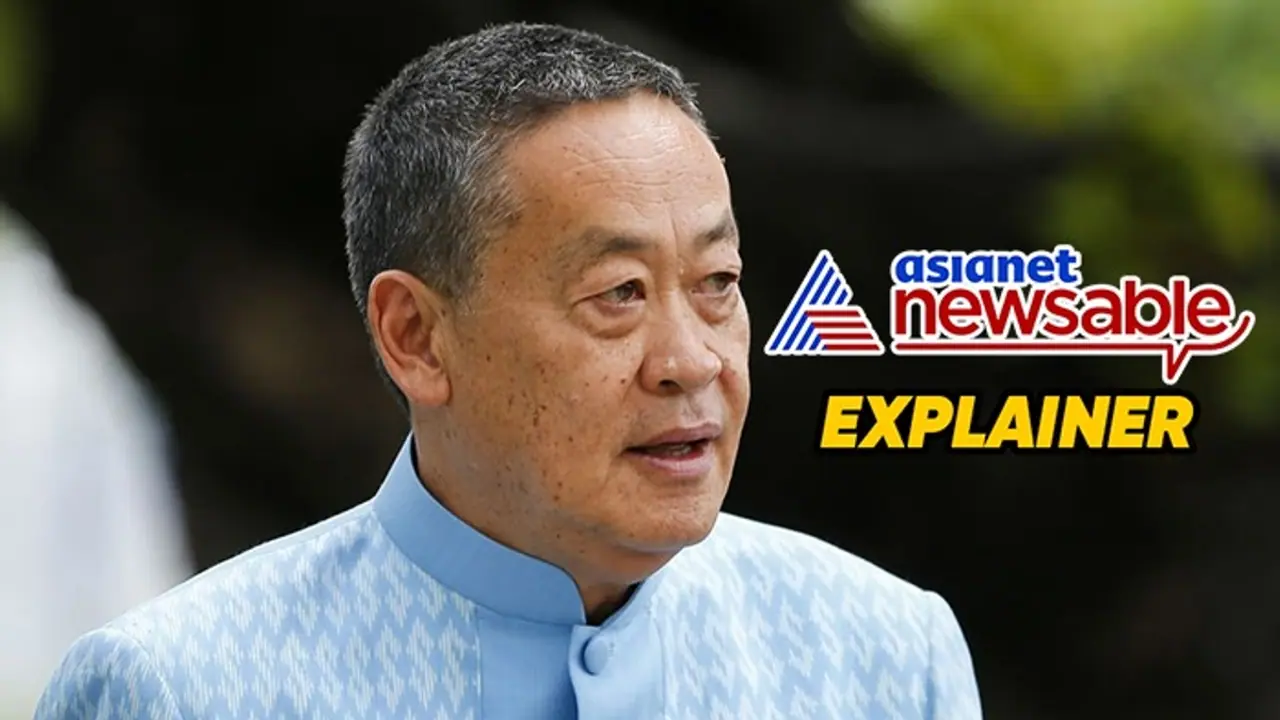Thailand's Prime Minister Srettha Thavisin was dismissed by the Constitutional Court on Wednesday due to a breach of ethics related to the appointment of a former lawyer with a past criminal record to his cabinet.
In a significant political development, Thailand's Prime Minister Srettha Thavisin was dismissed by the Constitutional Court on Wednesday due to a breach of ethics related to the appointment of a former lawyer with a past criminal record to his cabinet. The judges, in a 5-4 decision, determined that Srettha violated regulations by appointing a lawyer with a criminal record to his cabinet. This case was initiated by a group of former senators who were appointed by Thailand's previous ruling junta.

This ruling comes just a week after the same court disbanded the main opposition party, Move Forward Party (MFP), and imposed a 10-year political ban on its former leader. The dismissal has triggered a crucial process to choose a new leader for the nation.
What happens next?
Following Srettha's dismissal, Thailand's cabinet will assume a caretaker role, with Commerce Minister and Deputy Premier Phumtham Wechayachai stepping in as the acting prime minister.
The political parties are now tasked with deciding who they will nominate and support as the next premier, drawing from a list of candidates that was submitted before the 2023 general election.
Not all candidates from the pre-submitted list are expected to be put forward, as intense negotiations and potential horse-trading between parties are likely to take place in exchange for key cabinet positions.
The House Speaker will convene parliament to allow the lower house to vote on the next prime minister, although there are no specific rules dictating when this vote must occur.
To secure the position, a candidate must obtain the backing of more than half of the lower house's current 493 lawmakers, which equates to at least 247 votes.
Should no candidate reach this threshold, the house will reconvene later for another vote, with the possibility of new candidates being nominated.
The current 11-party coalition government holds 314 seats in the lower house, providing them with a strong influence in the selection process. Once chosen, the new prime minister will be required to appoint a cabinet and present their policies to parliament before assuming governance.
Who are the likely candidates for Prime Minister?
Several key figures are emerging as potential candidates to replace Srettha Thavisin:
Paetongtarn Shinawatra, 37, daughter of the billionaire and Pheu Thai Party figurehead Thaksin Shinawatra. Paetongtarn, who currently leads the party, could become the third member of the Shinawatra family to hold the prime ministerial office if chosen.
Chaikasem Nitisiri, a former justice minister and a stalwart of the Pheu Thai Party, is another strong contender.
Anutin Charnvirakul, the current Interior Minister and Deputy Premier, is noted for his successful push for the liberalization of cannabis in Thailand. He is the leader of the Bhumjaithai Party, the second-largest partner in the coalition government.
Energy Minister Pirapan Salirathavibhaga, a former justice minister and leader of the conservative Thai Raksa Chart Party, is also among the potential candidates.
Prawit Wongsuwan, a former army chief and influential political deal-maker, is another possibility. As the leader of the conservative and military-aligned Palang Pracharat Party, Prawit has been a central figure in the last two coups against Shinawatra-led governments.
The coming days will be crucial as the parties negotiate and the parliament votes to determine Thailand's next prime minister amidst a backdrop of political uncertainty and maneuvering.
